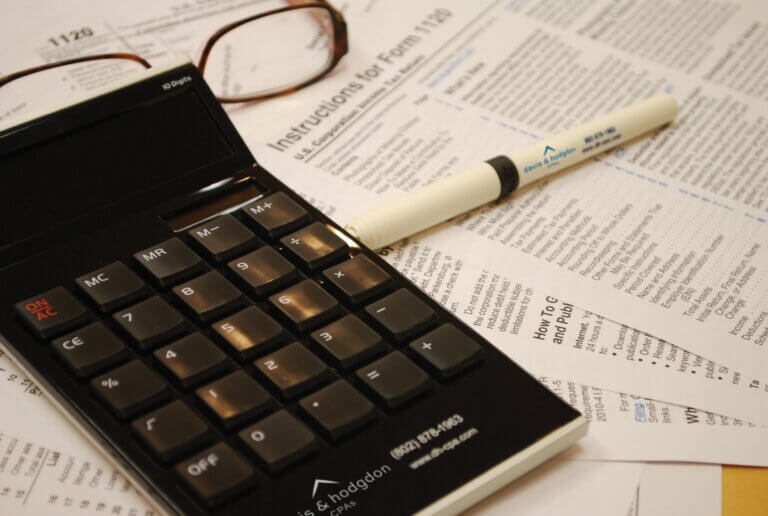Simplified Employer Pension (SEP) IRA
This post provides you with important information about SEP IRAs including several taxpayer-friendly incentives for both individuals and businesses. SEP IRAs (Simplified Employer Pension) are retirement plans that provide small business owners and self-employed individuals with a variety of benefits. Some of the benefits and requirements pertaining to establishing and utilizing this popular form of retirement plan are summarized below.
What are SEP IRAs?
SEP IRAs (Simplified Employer Pension Plans) are retirement plans that provide small business owners and self-employed individuals with a variety of benefits. In addition to generally being 100% tax deductible, a SEP IRA allows a business to:
- Contribute up to the lower of 25% of compensation or $56,000 for 2019, per employee.
- Contribution flexibility, as the percentage of contributions can vary each year from 0% to 25% of employee compensation.
- Consolidate with other retirement plans, such as traditional IRAs, 401(k), 403(b), and rollover IRAs. (however, SEP IRAs cannot be combined with a Roth IRA or retirement accounts that have after-tax contributions).
- Grow tax-deferred. Similar to other IRAs, you can withdraw from a SEP after age 59½ and must begin distributions at age 70½. Any withdrawals before age 59½. will result in a 10% IRS penalty, in addition to being taxed as ordinary income. Exceptions do apply, however, for some expenses such as the purchase of a home or medical bills, in which case no penalty is assessed.
Benefits to Businesses.
There are several benefits of establishing a SEP IRA for the small business owner:
- Contributions are tax deductible
- Flexibility of contributions from year to year.
- Nominal administrative costs.
- Create positive employee relations.
- The business does not pay taxes on investment earnings.
- Tax credit of up to $500 per year for each of the first three years for the cost of starting a plan.
Eligibility Requirements.
Most businesses qualify for establishing a SEP IRA: sole proprietors, partnerships, S corporations.
Additionally, all employees who are age 21 or older who earned $600 or more income in the current year and have worked for the business in at least three of the past five years must be included in the SEP IRA plan.
A SEP IRA also allows the small business owner to elect to cover the following employees, who may not be eligible for other plans:
- Employees covered by union contracts
- Employees who received less that $600 of income that year
The plan can be setup and funded anytime up until the due date for the tax return including extensions.
Establishing a SEP IRA.
There are three steps required to set up a SEP:
1. A written agreement. Approved SEP agreements include Form 5305-SEP, Simplified Employee Pension—Individual Retirement Accounts Contribution Agreement, which can be accessed from the IRS website. Additional approved prototype SEPs are offered by financial institutions such as banks and insurance companies.
2. Eligible employees must be given information about the SEP. Information given includes the written agreement and its instructions. Information about the SEP IRA should include the following:
- The SEP administrator will distribute a copy of any amendments to the plan within 30 days of the date that it goes into effect.
- All employees who participate in the SEP plan will be given a report of employer contributions made by January 31st of the next year.
3. All eligible employees must be set up with a SEP IRA account. As previously mentioned, this includes all employees who are age 21 or older who earned $600 or more income in the current year and have worked for the business in at least three of the past five years. The SEP IRA can be set up with any qualified financial institution. The employee is immediately 100% vested in contributions made on the employee’s behalf by the employer.
4. In addition, an employer can establish and fund a new SEP plan any time up until the tax return is filed.
Making SEP Contributions.
The employer can decide to contribute 0% to 25% of an employee’s income into a plan fund (up to $56,000). The percentage level of contribution must be the same for all eligible employees. The SEP IRA allows the employee to receive a tax -free fringe benefit, which is a tax deductible contribution for the employer. In addition, no payroll taxes are owed on the amount contributed.
Tax Deductibility of SEP Contributions.
The most that can be deducted on the business’ tax return for contributions to its employees’ SEP IRAs is the lesser of its contributions or 25% of all compensation. Compensation for each employee of the business is limited to $280,000 for 2019.
However, a separate calculation must be made if the employee is self-employed. When calculating the maximum deduction for contributions to a self-employed individual’s SEP IRA, the compensation is based on net earnings from self-employment. This takes into account the deduction of one-half of the individual’s self-employment tax and the deduction for contributions to one’s own SEP IRA.
Deadlines to Fund a SEP IRA.
The employer contributions must be made by the Federal income tax return deadline. If, however, the employer has extended its tax return, then it has until the end of that extension period to deposit the contribution, regardless of when it filed the tax return.
Which Plan is Right for My Business?
For many employers the question is not “should I implement a retirement plan?” Rather, “Which plan is right for our business?”
Before deciding whether a SEP is right for you, consider all of the options available to business owners and the advantages of each type of plan. Please don’t hesitate to call us if you would like to discuss your options further and determine what might best fit your needs.
This newsletter is published by Davis & Hodgdon CPAs as a service to our clients, business associates and friends. Recipients should not act on the information presented without seeking prior professional advice. Additional guidance may be obtained by contacting us at 802-878-1963 (Williston) or 802.775.7132 (Rutland).


